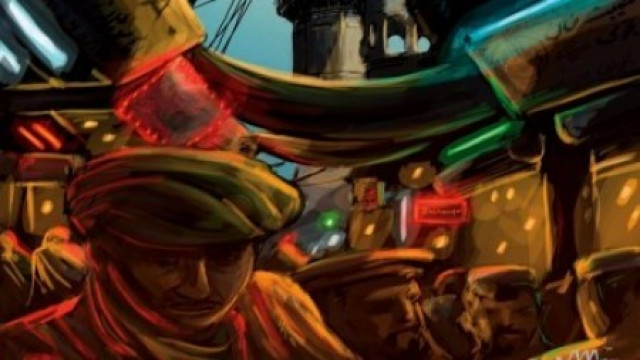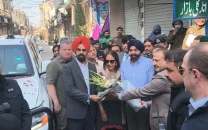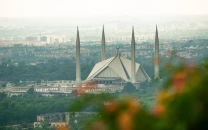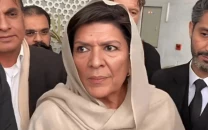The story of a city under attack

The story of a city under attack
A bazaar once known for its openness, Qissa Khwani bazaar is a shadow of its former self. Barbed wire and iron fences have cordoned off vehicular traffic since the October 2009 attack on Meena Bazaar, which killed over 120 people. In the olden days, Qissa Khwani bazaar was the first stop for caravans from Afghanistan and Central Asia and travellers unloaded their merchandise here. The bazaar takes its name from the tales of war and love that were swapped over endless cups of green tea – qissa khwani or storytelling.
H.G Reverty, who visited Peshawar in the 1850s, wrote of the bazaar as the liveliest part of the city, particularly at sunset when it was crowded. And many generations swear that they haven’t seen evenings as colourful and lively anywhere in the world. The bazaar itself begins from Kabuli – where Kabuli Gate, one of the 13 gates of the walled city, was once located – and meets Bazaar Misgaran or the silversmiths’ street and Mohammad Ali Jauhar Road. In the warrens crisscrossing the main market space, it was possible to find dry fruit, falooda, Karakul caps, tea stalls and sweet shops.
And in the evenings, the footpaths became fragrant with the smells of seekh tikka, seekh kababs and karhai being polished off by many a discerning connoisseur. But recurrent waves of terror, which targeted the city in the last two years, changed this bazaar. In 2007, four major blasts occurred close to the market and two inside the bazaar itself. Over two hundred people died and scores other were injured. And Qissa Khwani – once known as the ‘Piccadilly of Central Asia’ – was never the same again. Faiz Mohammad has been running a shop in a street near the bazaar for the past 35 years.
“It’s not just the bazaar, the entire city has changed because it has been constantly targeted by terrorists,” he says. Of all Pathan cities, Peshawar is the unchallenged queen, once wrote James W. Spain. But now? “The city has lost its traditional openness. Now, even a decade later, it’s like walking on another planet,” says Mohammad. Professor Khadim Hussain,of the Arayana Institute for Regional Research and Advocacy sees the attacks on Peshawar as an attempt to ‘Arab-ise’ Pakhtun society. “The culture and heritage of Pashtuns has been destroyed, whether they were from Afghanistan or Swat,” he regrets.
“Once the cultural connection is broken, subsequent generations are deprived of heritage. When a race is ideologically and physically separated from its culture, it becomes like a ship without an anchor; any culture and idea can penetrate such a nation. These attacks are part of a conscious attempt to convert Pashtun culture into Arab.” This is perhaps the reason Pashtun poet Rehmat Shah Sail wrote: “O Peshawar, I’ve always called thee city of flowers; how do I see thee being bombed?”



















COMMENTS
Comments are moderated and generally will be posted if they are on-topic and not abusive.
For more information, please see our Comments FAQ